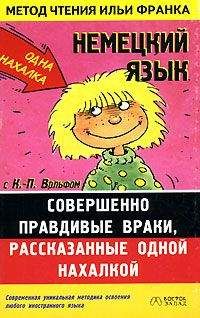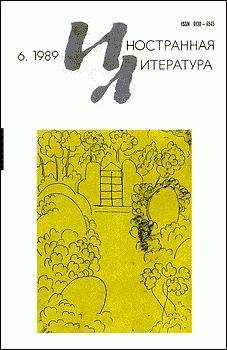Уильям Моэм - Английский язык с У. С. Моэмом. На окраине империи. Рассказы
"And what is his reward?" "His reward is the consciousness of having achieved what he set out to do."
"It all sounds a little portentous to me (для меня это звучит немного напыщенно; to sound — звучать, издавать звук; звучать, создавать впечатление; portentous — зловещий; важный, напыщенный)," said Edward, and in the lightness of the night Bateman could see that he was smiling (сказал Эдвард, и при освещенности ночи = поскольку ночь была светлой Бейтман разглядел, что тот улыбается; lightness — освещенность, степень освещения). "I'm afraid you'll think I've degenerated sadly (боюсь, тебе покажется, что я серьезно: «печально» дегенерировал/выродился = опустился). There are several things I think now (сейчас я мечтаю о таких вещах; to think— думать, размышлять; постоянно думать, мечтать) which I daresay would have seemed outrageous to me three years ago (которые, полагаю, показались бы мне возмутительными три года назад)."
"Have you learnt them from Arnold Jackson (ты узнал о них от Арнольда Джексона)?" asked Bateman, scornfully (с насмешкой спросил Бейтман; scorn — презрение, пренебрежение; насмешка, высмеивание).
"You don't like him (он тебе не понравился)? Perhaps you couldn't be expected to (пожалуй, этого и невозможно от тебя требовать; to expect— ожидать; рассчитывать, требовать). I didn't when I first came (мне /он/ не понравился, когда я только приехал сюда). I had just the same prejudice as you (у меня было точно такое же предубеждение, как и у тебя). He's a very extraordinary man (он весьма необычный человек).
portentous [pO:'tentqs], degenerate [dI'dZenqreIt], outrageous [aut'reIdZqs], scornfully ['skO: nf(q)lI], prejudice ['predZqdIs], extraordinary [Ik'strO: d(q)n(q)rI]
"It all sounds a little portentous to me," said Edward, and in the lightness of the night Bateman could see that he was smiling. "I'm afraid you'll think I've degenerated sadly. There are several things I think now which I daresay would have seemed outrageous to me three years ago."
"Have you learnt them from Arnold Jackson?" asked Bateman, scornfully.
"You don't like him? Perhaps you couldn't be expected to. I didn't when I first came. I had just the same prejudice as you. He's a very extraordinary man.
You saw for yourself (ты сам видел) that he makes no secret of the fact that he was in a penitentiary (что он не делает тайны из того факта, что он был в тюрьме: «исправительном заведении»). I do not know that he regrets it or the crimes that led him there (я не знаю, сожалеет ли он об этом, или о тех преступлениях, что привели его туда). The only complaint he ever made in my hearing (единственная жалоба, которую он когда-либо высказал в моем присутствии; complaint— недовольство; жалоба;hearing— слух; предел слышимости) was that when he came out his health was impaired (заключалась в том, что когда он вышел, его здоровье было подорвано; to impair— ослаблять; ухудшать, причинять ущерб). I think he does not know what remorse is (мне кажется, он не знает что такое угрызения совести). He is completely unmoral (он совершенно безнравственен). He accepts everything and he accepts himself as well (он приемлет все, равно как и себя самого). He's generous and kind (он щедрый и добрый; generous — великодушный; щедрый)."
"He always was (он всегда был таким)," interrupted Bateman (прервал его Бейтман), "on other people's money (за чужой счет: «на деньги других людей»)."
complaint [kqm'pleInt], health [helT], impair [Im'peq], generous ['dZen(q)rqs]
You saw for yourself that he makes no secret of the fact that he was in a penitentiary. I do not know that he regrets it or the crimes that led him there. The only complaint he ever made in my hearing was that when he came out his health was impaired. I think he does not know what remorse is. He is completely unmoral. He accepts everything and he accepts himself as well. He's generous and kind."
"He always was," interrupted Bateman, "on other people's money."
"I've found him a very good friend (я увидел, что он очень хороший друг: «я обнаружил, что он очень хороший друг»). Is it unnatural that I should take a man as I find him (это что, противоестественно, что я принимаю человека таким, каким я его нахожу; to take— брать, хватать; воспринимать, реагировать)?"
"The result is that you lose the distinction between right and wrong (а в результате ты утратил различие между добром и злом)."
"No, they remain just as clearly divided in my mind as before (нет, они остаются столь же отчетливо разделенными у меня в голове, как и прежде), but what has become a little confused in me (но что /действительно/ немного смешалось в моей /голове/) is the distinction between the bad man and the good one (так это различие между плохим человеком и хорошим). Is Arnold Jackson a bad man who does good things (кто он — Арнольд Джексон — плохой человек, который совершает добрые поступки) or a good man who does bad things (или хороший человек, совершающий плохие поступки)? It's a difficult question to answer (на этот вопрос сложно ответить). Perhaps we make too much of the difference between one man and another (возможно, мы проводим слишком много различий между хорошим и плохим человеком). Perhaps even the best of us are sinners (может быть, даже самые лучшие из нас — грешники) and the worst of us are saints (и самые худшие из нас — праведники). Who knows (кто знает)?"
unnatural [An'nxtS(q)rql], distinction [dIs'tIN(k)S(q)n], sinner ['sInq], saint [seInt]
"I've found him a very good friend. Is it unnatural that I should take a man as I find him?"
"The result is that you lose the distinction between right and wrong."
"No, they remain just as clearly divided in my mind as before, but what has become a little confused in me is the distinction between the bad man and the good one. Is Arnold Jackson a bad man who does good things or a good man who does bad things? It's a difficult question to answer. Perhaps we make too much of the difference between one man and another. Perhaps even the best of us are sinners and the worst of us are saints. Who knows?"
"You will never persuade me that white is black and that black is white (ты никогда не убедишь меня, что белое — черное, а черное — белое)," said Bateman.
"I'm sure I shan't, Bateman (уверен, что нет, Бейтман)."
Bateman could not understand why the flicker of a smile crossed Edward's lips (Бейтман не мог понять, почему подобие улыбки промелькнуло на устах Эдварда; flicker — мерцание; короткая вспышка, проблеск; to cross — пересекать, переходить) when he thus agreed with him (когда он согласился с ним таким вот образом). Edward was silent for a minute (минуту Эдвард молчал).
"When I saw you this morning, Bateman (когда я увидел тебя сегодня утром, Бейтман)," he said then (сказал он затем), "I seemed to see myself as I was two years ago (мне показалось, что я увидел себя, каким я был два года назад). The same collar (тот же самый воротничок), and the same shoes (такие же туфли), the same blue suit (такой же синий костюм), the same energy (такая же активность/энергия). The same determination (такая же решимость). By God, I was energetic (Бог мой, я /действительно/ был активный/энергичный). The sleepy methods of this place made my blood tingle (от ленивых: «сонных» методов этого местечка моя кровь кипела; to tingle— ощущать звон, шум /в ушах/; раздражать, возбуждать). I went about and everywhere I saw possibilities for development and enterprise (я везде побывал, и везде я видел возможности для развития и предпринимательства; to go about— расхаживать туда и сюда). There were fortunes to be made here (здесь можно было наживать состояния).
persuade [pq'sweId], energy ['enqdZI], tingle ['tINg(q)l], enterprise ['entqpraIz]
"You will never persuade me that white is black and that black is white," said Bateman.
"I'm sure I shan't, Bateman."
Bateman could not understand why the flicker of a smile crossed Edward's lips when he thus agreed with him. Edward was silent for a minute.
"When I saw you this morning, Bateman," he said then, "I seemed to see myself as I was two years ago. The same collar, and the same shoes, the same blue suit, the same energy. The same determination. By God, I was energetic. The sleepy methods of this place made my blood tingle. I went about and everywhere I saw possibilities for development and enterprise. There were fortunes to be made here.
It seemed to me absurd (мне казалось нелепым) that the copra should be taken away from here in sacks and the oil extracted in America (что сушеные ядра кокосового ореха вывозились отсюда мешками, а масло отжималось в Америке; to extract — извлекать, вытягивать; выжимать). It would be far more economical to do all that on the spot (было бы гораздо более экономичным делать это все здесь же, на месте; spot — пятно; место, местность), with cheap labour (с дешевой рабочей силой), and save freight (и не тратить денег на перевозки; to save — спасать, уберегать; беречь, экономить; freight — фрахт, стоимость перевозки), and I saw already the vast factories springing up on the island (и я видел уже, как обширные фабрики быстро растут по всему острову). Then the way they extracted it from the coconut seemed to me hopelessly inadequate (затем, способ, которым отжималось масло из кокосов, показался мне безнадежно неподходящим: «неадекватным»), and I invented a machine which divided the nut (и я изобрел машину, которая дробила орех на части; to divide — делить, разделять) and scooped out the meat at the rate of two hundred and forty an hour (и отделяла мякоть со скоростью двести сорок орехов в час; to scoop — копать, выкапывать; meat — мясо; амер. мякоть; rate — норма, размер; скорость, темп).
copra ['kOprq], extracted [Ik'strxktId], labour ['leIbq], freight [freIt], inadequate [In'xdIkwIt], scoop [sku: p]
It seemed to me absurd that the copra should be taken away from here in sacks and the oil extracted in America. It would be far more economical to do all that on the spot, with cheap labour, and save freight, and I saw already the vast factories springing up on the island. Then the way they extracted it from the coconut seemed to me hopelessly inadequate, and I invented a machine which divided the nut and scooped out the meat at the rate of two hundred and forty an hour.
The harbour was not large enough (порт оказался недостаточно большим). I made plans to enlarge it (я разработал план расширить его), then to form a syndicate to buy land (затем организовать консорциум, чтобы купить землю), put up two or three large hotels (построить два или три больших отеля; to put up — поднимать; строить, возводить), and bungalows for occasional residents (и бунгало для возможных: «случайных, редких» приезжих жителей; occasional — случающийся время от времени; редкий, случайный; resident — постоянно проживающее лицо, житель, поселившийся где-либо/с определенного времени/); I had a scheme for improving the steamer service (у меня был план по улучшению работы пароходной линии; service — услужение; сфера услуг, обслуживание населения) in order to attract visitors from California (для того, чтобы привлечь туристов из Калифорнии; visitor — посетитель, гость; приезжий, турист). In twenty years, instead of this half French, lazy little town of Papeete (через двадцать лет, вместо этого наполовину французского, ленивого /маленького/ городка Папеэте) I saw a great American city with ten-storey buildings and streetcars (я видел большой американский город с десятиэтажными зданиями и трамваями), a theatre and an opera house (с театром и оперой), a stock exchange and a mayor (фондовой биржей и мэром)."



